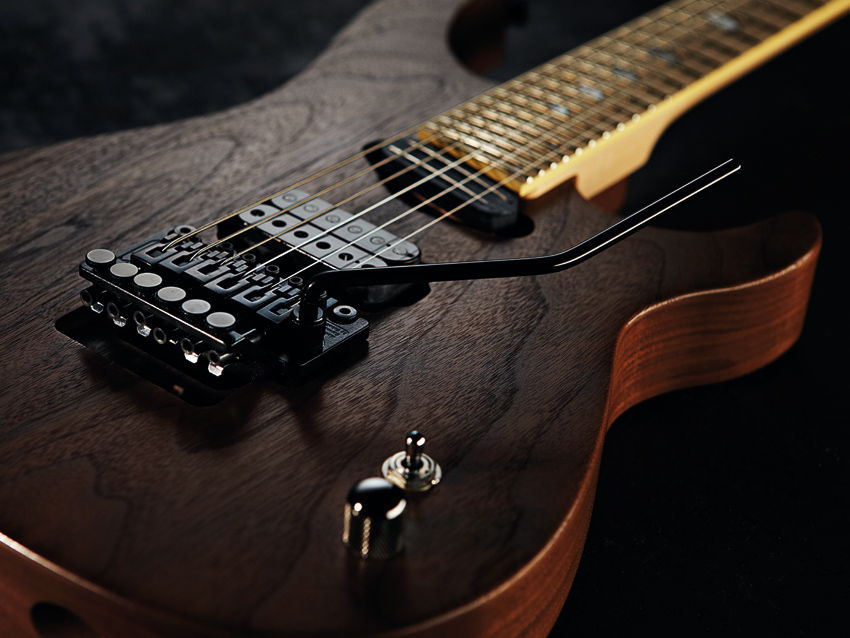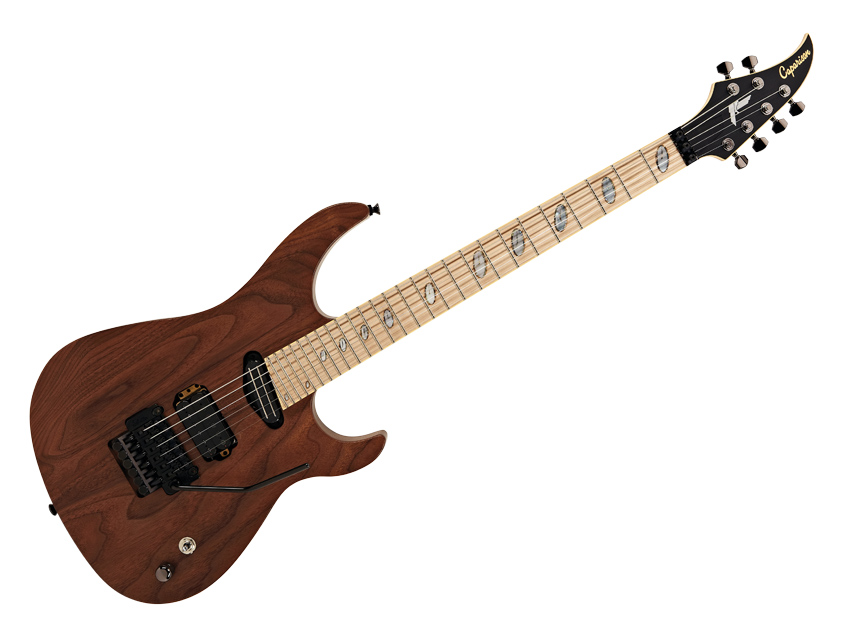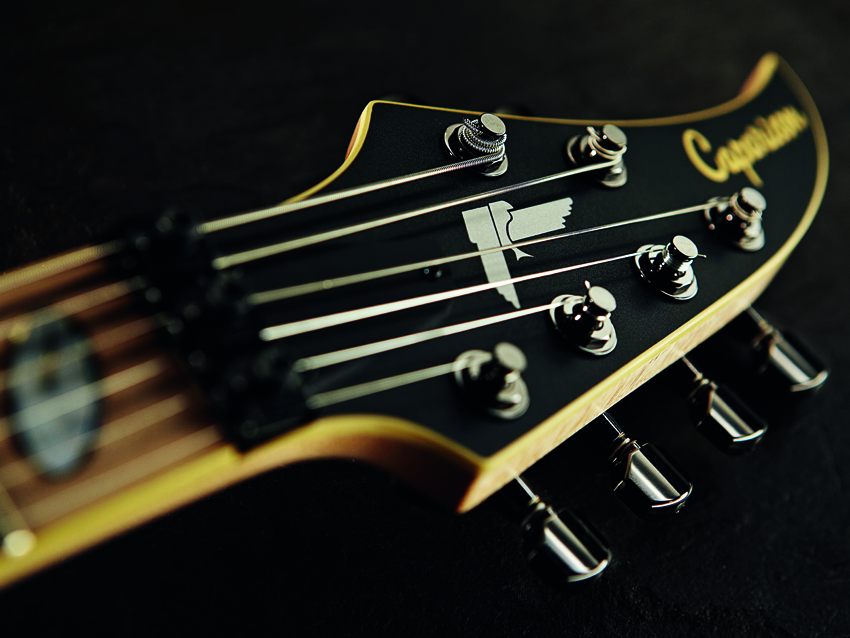MusicRadar Verdict
If down-tuned, Satanic-voiced riffs are your business, the Horus-HGS offers excellent bottom-string grunt in an ultra-playable format.
Pros
- +
Bowel-emptying tone; the aggressive bridge pickup; top-notch build quality.
Cons
- -
Some may run screaming from the price tag.
MusicRadar's got your back

Caparison Horus-HGS

Caparison Horus-HGS

Caparison Horus-HGS
Originally launched back in 2006, the Caparison Horus-HGS or 'Heavy Gauge Strings' model offers baritone B to B tuning (high to low: B F# D A E B) for metalheads on a regular 628mm (24.75-inch) scale length with a set of 0.010 to 0.052 gauge strings.
Now, you might be thinking there's no way a guitar with the same scale length as a Gibson Les Paul can tolerate B to B tuning without the strings flopping around like an earthworm on muscle relaxants. Well, our HGS might be packing heavier 0.011 to 0.054 Ernie Ball Beefy Slinky wires but it plays fine, and strings can't make that much difference, so what gives?
"Distortion unleashes the pickup's aggressive side, best showcased when beating out bottom-string riffs."
Caparison has addressed the tension issue by moving the Schaller S-FRT II Floyd Rose vibrato back by 3mm, thus making the strings playable with good intonation. But here's where it gets a bit tricky - technically that extra 3mm increases the guitar's scale length to 631mm (24.8 inches); not very Les Paul-like.
Caparison says that the 628mm scale listed on the spec sheet only refers to the fact that the HGS shares the same length neck of the regular Horus model. Yet the plot thickens when you approach the HGS with a measuring tape.
We came away with a slightly higher figure of 638mm (25.1 inches) - but while this is more than listed, that's still streets away from various 686mm (27-inch) to 770mm (30.3-inch) scale baritones.
Putting the measuring tape away and plugging in the Horus-HGS, we can report that the moment you do, any doubts about string tension or scale length evaporate. The low B rings out like a bell; intonation is perfect across on the 'board; and we're more than impressed that Caparison has managed to set-up a floating Floyd Rose vibrato with such low string tension on offer.
Want all the hottest music and gear news, reviews, deals, features and more, direct to your inbox? Sign up here.
Playability is excellent, with a fingerboard that flattens out as you work your way up to the 12th fret and beyond. While our HGS is perfectly set up, we reckon heavier gauge strings would boost the tone and provide some useful additional string tension. As good as Caparison's efforts are, you can't ultimately change the laws of physics.
It's fair to say the Horus-HGS is aimed at metal guitarists. It has a 'Devil's Tail' headstock shape, for goodness sake, so it's unlikely that this particular baritone will see action as a tic-tac bass in an old school country band.
Caparison has further enhanced the guitar's metal credentials by building the HGS from walnut, a rather unconventional choice of tonewood that boosts the presence of the detuned strings.
Sounds
The Alnico V-powered PH-R humbucker counters the inherent brightness of the walnut body with a warm and rounded clean tone. Distortion unleashes the pickup's aggressive side, best showcased when beating out bottom-string riffs, and we love that you can almost tickle groaning false harmonics from the lower strings.
With the infectious blast of the bridge 'bucker on offer, the SH-27F neck pickup could see about as much action as Dad's Army, but you should give it a whirl. This single-coil-sized humbucker is perfect for sustained upper register widdling, overdriven blues licks and even clean spaghetti western-style twang.
Caparison's parent company Kyowa Shokai Ltd went belly up in 2011. But happily the brand was bought by its current UK-based owners, the aptly named Caparison Guitar Company, which assures us its guitars are "still designed by [former Jackson/Charvel Japan designer] Itaru Kanno and manufactured in the same Japanese factory to the same high standards."
When we pulled the HGS from its hard case, the build quality and set-up confirmed that Caparison is indeed firing on all cylinders. It's obviously pricy, but once you've had the pleasure of beating brutal down-tuned riffs from a regular scale guitar, baritones and extended-scale electrics are simply no Caparison.